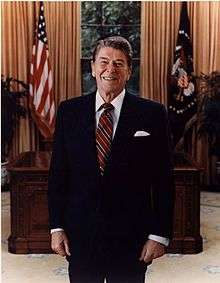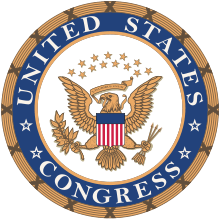Six Assurances

The Six Assurances are unilateral clarifications to the Third Communiqué between the United States and the People's Republic of China in 1982. They were intended to reassure both Taiwan and the United States Congress that the US would continue to support Taiwan even if it had earlier cut formal diplomatic relations.
The assurances were originally proposed by the then KMT government of the Republic of China on Taiwan during negotiations between the U.S. and the People's Republic of China. The U.S. Reagan administration agreed to assurances and informed the United States Congress of them in July 1982.
Today, the Six Assurances are part of informal guidelines used in conducting relations between the US and Taiwan. The assurances have been generally reaffirmed by successive U.S. administrations, but their formal content was adopted by the US House of Representatives only in 2016, however without making them binding.
Text

The United States House of Representatives passed the following concurrent resolution on May 16, 2016, giving the first formal wording for the Six Assurances by more or less directly adopting how the former Assistant Secretary of State for East Asian and Pacific Affairs John H. Holdridge expressed them in 1982:[1]
- “* * * [W]e did not agree to set a date certain for ending arms sales to Taiwan”;[1]
- “* * * [W]e see no mediation role for the United States” between Taiwan and the PRC;[1]
- “* * *[N]or will we attempt to exert pressure on Taiwan to enter into negotiations with the PRC”;[1]
- “* * * [T]here has been no change in our longstanding position on the issue of sovereignty over Taiwan”;[1]
- “We have no plans to seek” revisions to the Taiwan Relations Act;[1] and
- the August 17 Communiqué, “should not be read to imply that we have agreed to engage in prior consultations with Beijing on arms sales to Taiwan”.[1]
The resolution has been received by the Senate and referred to the Committee on Foreign Relations.
In the first version, which was introduced to Congress by Rep. Steve Chabot on October 28, 2015,[2] the Six Assurances were proposed to be:
- The United States would not set a date for termination of arms sales to Taiwan;[2]
- The United States would not alter the terms of the Taiwan Relations Act;[2]
- The United States would not consult with China in advance before making decisions about United States arms sales to Taiwan;[2]
- The United States would not mediate between Taiwan and China;[2]
- The United States would not alter its position about the sovereignty of Taiwan which was, that the question was one to be decided peacefully by the Chinese themselves, and would not pressure Taiwan to enter into negotiations with China;[2] and
- The United States would not formally recognize Chinese sovereignty over Taiwan.[2]
Reaffirmation
The State Department has reaffirmed the Six Assurances repeatedly.[3]
On May 19, 2016, one day before Dr. Tsai Ing-wen assumed the Presidency of the Republic of China, U.S. Senators Marco Rubio (R-FL), a member of the Senate Foreign Relations Committee and Senate Select Committee on Intelligence and Bob Menendez (D-NJ), former chair of the Senate Foreign Relations Committee and co-chair of the Senate Taiwan Caucus, introduced a concurrent resolution reaffirming the Taiwan Relations Act and the “Six Assurances” as cornerstones of United States–Taiwan relations.[4][5][6]
The 2016 Republican National Convention in the Republican Party Platform states "Our relations will continue to be based upon the provisions of the Taiwan Relations Act, and we affirm the Six Assurances given to Taiwan in 1982 by President Reagan. We oppose any unilateral steps by either side to alter the status quo in the Taiwan Straits on the principle that all issues regarding the island’s future must be resolved peacefully, through dialogue, and be agreeable to the people of Taiwan. If China were to violate those principles, the United States, in accord with the Taiwan Relations Act, will help Taiwan defend itself... As a loyal friend of America, Taiwan has merited our strong support, including free trade agreement status, the timely sale of defensive arms including technology to build diesel submarines..."[7]
See also
References
- 1 2 3 4 5 6 7 "H.Con.Res.88 - Reaffirming the Taiwan Relations Act and the Six Assurances as cornerstones of United States-Taiwan relations.". congress.gov. May 16, 2016. Retrieved May 19, 2016.
- 1 2 3 4 5 6 7 "H.Con.Res.88 - Reaffirming the Taiwan Relations Act and the Six Assurances as the cornerstone of United States-Taiwan relations". October 28, 2015. Retrieved April 22, 2016.
- ↑ U.S.-Taiwan Relations, U.S. Department of State, February 14, 2003
- ↑ Menendez, Rubio: "Six Assurances" Continued Foundation of U.S.-Taiwan Relations, Senator Bob Menendez, May 19, 2016
- ↑ Rubio, Menendez: ‘Six Assurances’ Continued Foundation Of U.S.-Taiwan Relations, Senator Marco Rubio, May 19, 2016
- ↑ S.Con.Res.38 - A concurrent resolution reaffirming the Taiwan Relations Act and the Six Assurances as cornerstones of United States-Taiwan relations., Congress.gov, May 19, 2016
- ↑ The 2016 Republican Party Platform, Republican National Committee, July 18, 2016
External links
- U.S. Department of State Press Release - Nov. 10th, 2004
- The "Six Assurances" to Taiwan
- The July 2007 CRS Report to Congress
- Heritage Foundation: President Reagan's Six Assurances to Taiwan and Their Meaning Today
- Heritage Foundation: Why the Administration Should Reaffirm the "Six Assurances" to Taiwan
- 公投入聯國 美國反對 民進黨不退縮
